
Find Help
More Items From Ergsy search
-
Is there an age limit for receiving blood transfusions?
Relevance: 100%
-
What is a blood transfusion?
Relevance: 67%
-
Blood Product Transfusions
Relevance: 64%
-
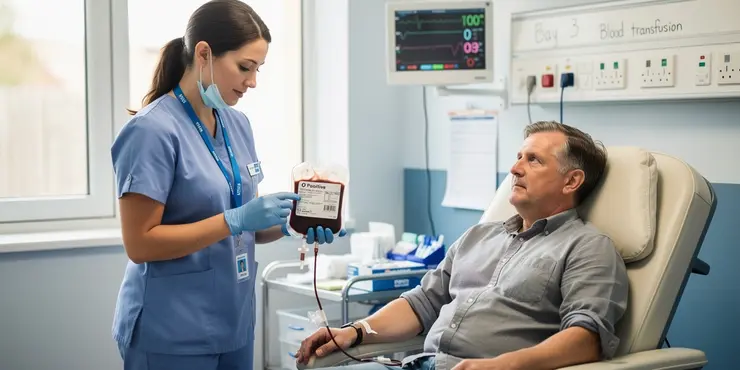
Blood Transfusion
Relevance: 62%
-

Are there risks associated with blood transfusions?
Relevance: 60%
-
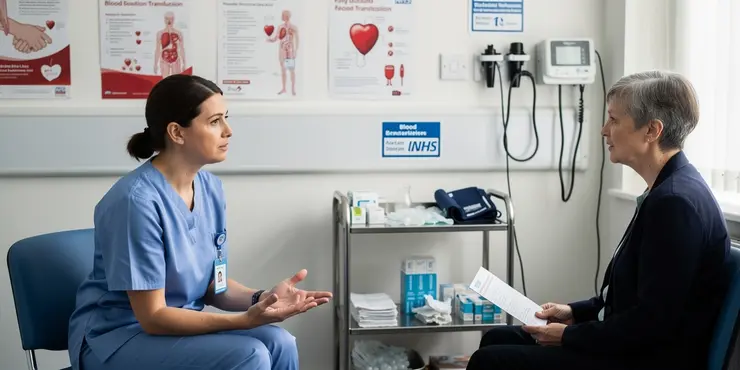
Is HTLV a risk in blood transfusions?
Relevance: 58%
-
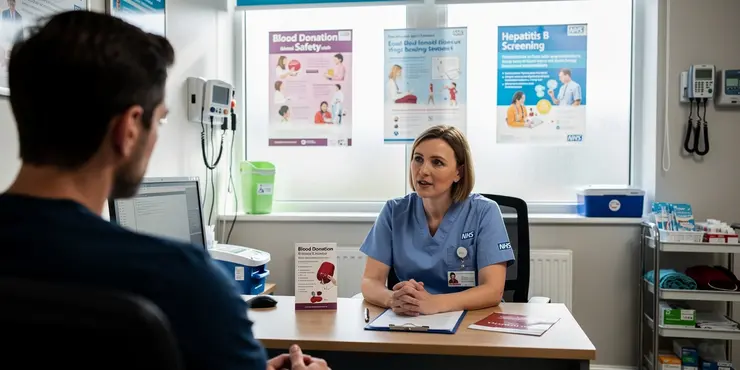
Is Hepatitis B a risk in blood transfusions?
Relevance: 57%
-
How long does a blood transfusion take?
Relevance: 57%
-
Why might someone need a blood transfusion?
Relevance: 56%
-
Can HIV be transmitted through blood transfusions?
Relevance: 55%
-

How do doctors determine how much blood is needed for a transfusion?
Relevance: 55%
-

What diseases can be spread by blood transfusions?
Relevance: 55%
-
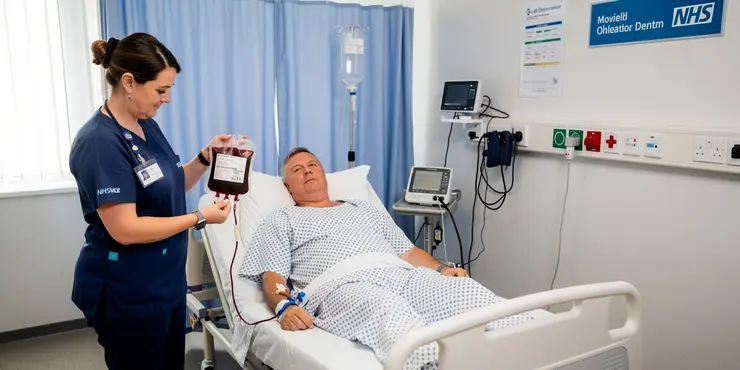
What types of blood products can be transfused?
Relevance: 55%
-
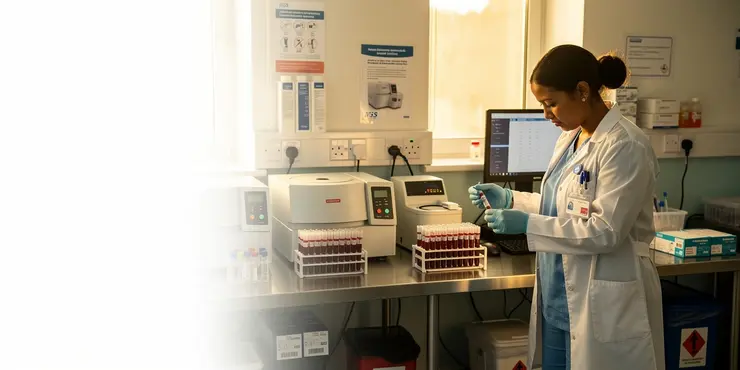
How do healthcare providers match blood for transfusions?
Relevance: 55%
-
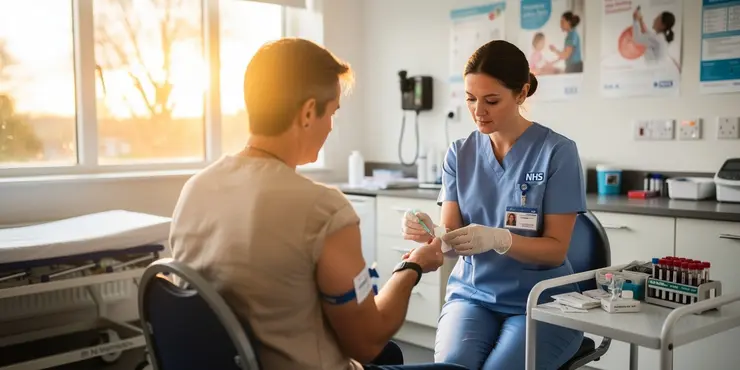
Is Chagas disease a concern with blood transfusions?
Relevance: 55%
-
What are some common reasons blood transfusions are needed?
Relevance: 54%
-
Can someone have a reaction to a mismatched blood transfusion?
Relevance: 54%
-
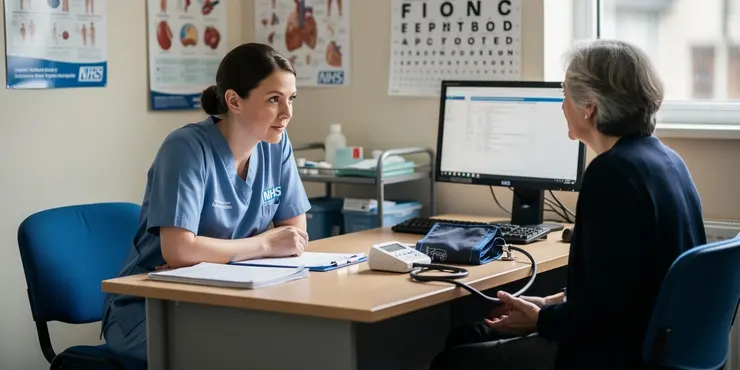
Can syphilis be transmitted via blood transfusion?
Relevance: 54%
-
Is Zika virus screened for in blood transfusions?
Relevance: 54%
-
Can bacterial infections be transmitted through blood transfusion?
Relevance: 53%
-
Can people of any blood type receive a transfusion of any blood type?
Relevance: 53%
-
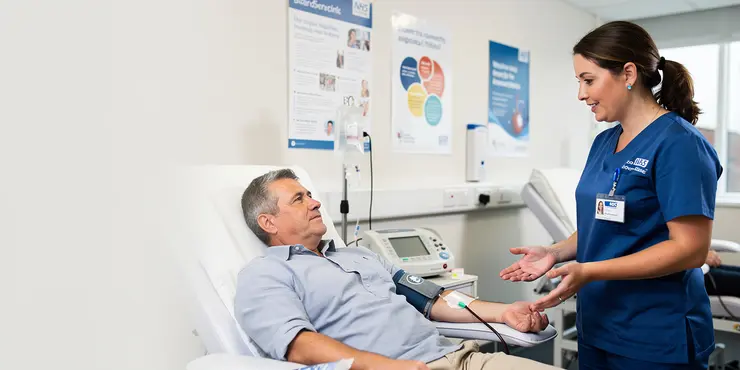
Are there any parasites that can be transmitted through blood transfusions?
Relevance: 53%
-
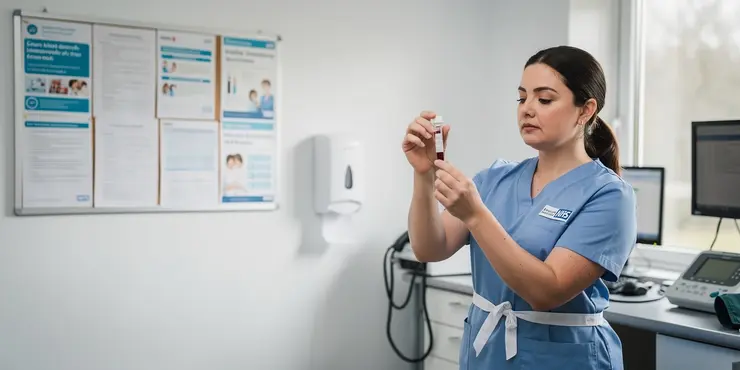
What is the most common disease transmitted by blood transfusion?
Relevance: 53%
-
Is malaria still a concern for blood transfusion safety?
Relevance: 53%
-
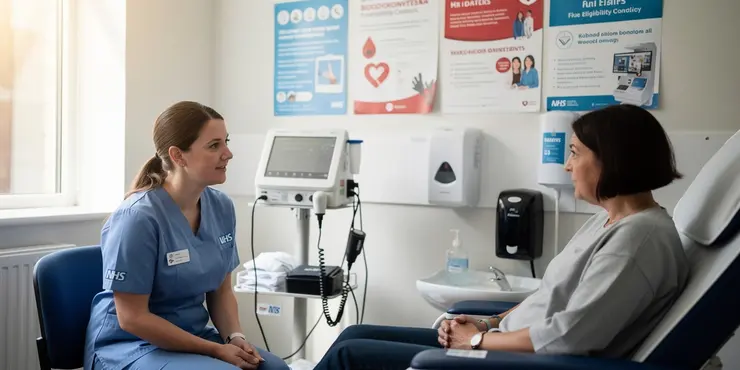
Can COVID-19 be transmitted through blood transfusions?
Relevance: 53%
-
Can Dengue fever be transmitted through blood transfusions?
Relevance: 53%
-
Can certain medical conditions prevent receiving blood transfusions?
Relevance: 52%
-
Can you get any prion diseases from blood transfusion?
Relevance: 50%
-

What measures are taken to prevent disease transmission in blood transfusions?
Relevance: 47%
-
Is blood used for transfusions safe?
Relevance: 45%
-
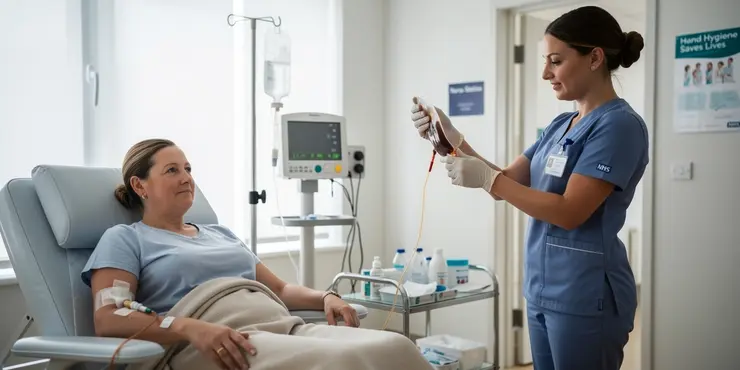
What is plasma, and why might it be transfused?
Relevance: 44%
-
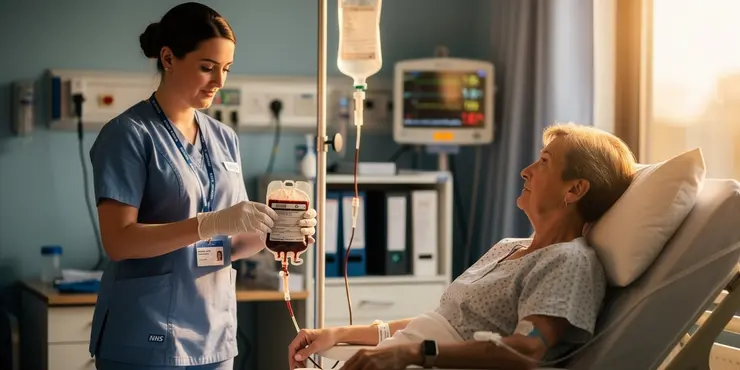
Can cytomegalovirus (CMV) be spread through transfusions?
Relevance: 42%
-
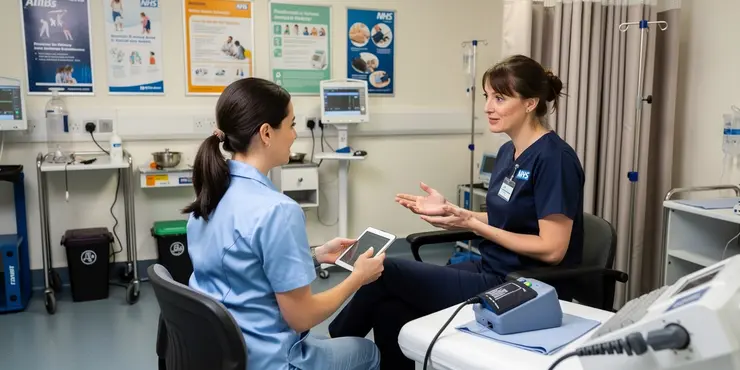
Are there global differences in screening for blood transfusions?
Relevance: 42%
-
What should a patient expect after a blood transfusion?
Relevance: 38%
-
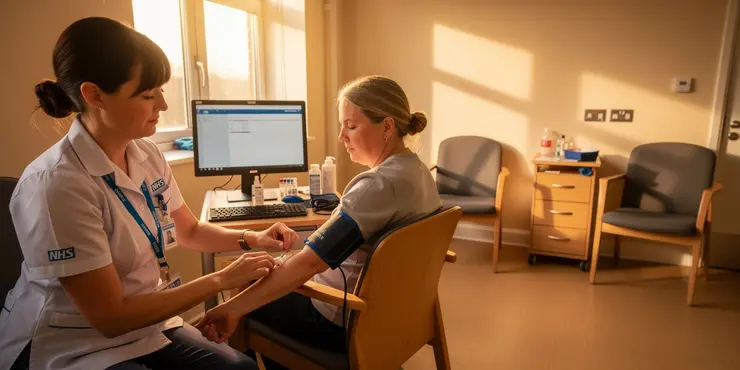
How is blood screened to prevent disease transmission?
Relevance: 37%
-
What kind of follow-up care is needed after a blood transfusion?
Relevance: 37%
-
Are new emerging pathogens a risk for blood safety?
Relevance: 35%
-
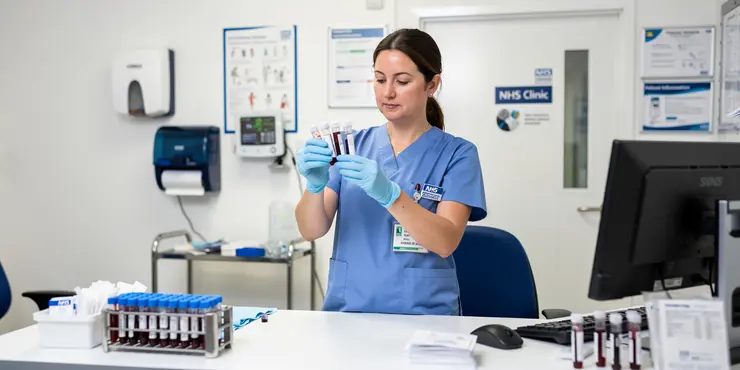
What other viruses are tested for in blood donations?
Relevance: 33%
-
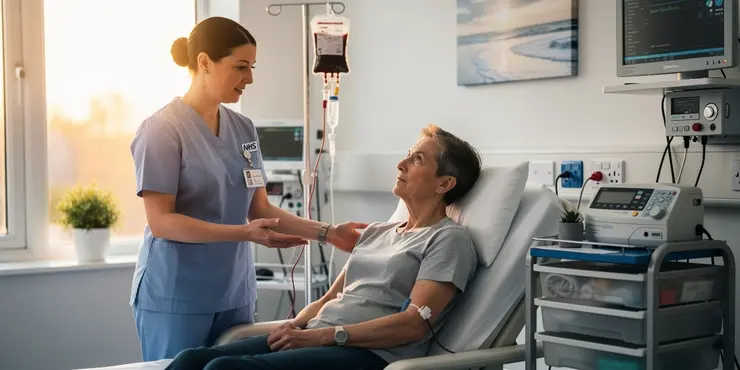
How is a blood transfusion performed?
Relevance: 31%
-
Why is it important to limit salt intake?
Relevance: 29%
Introduction
Blood transfusions are a critical medical procedure that can save lives in a range of situations, including surgeries, trauma care, and management of chronic illnesses or conditions that cause severe anemia. However, many people are curious about whether there is an age limit for receiving blood transfusions, particularly in the UK. This article explores the guidelines and considerations regarding age and blood transfusions.
General Guidelines for Blood Transfusions
In the UK, blood transfusions are guided by the policies and standards set by the NHS Blood and Transplant (NHSBT). The decision to administer a blood transfusion is primarily based on clinical need rather than age. Doctors assess each patient's health condition, the severity of the situation, and potential benefits versus risks before recommending a transfusion. These guidelines ensure that transfusions are carried out safely and effectively.
Age-Related Considerations
There is no specific age limit for receiving blood transfusions in the UK. Both young children and older adults can receive blood when medically necessary. However, special considerations are often made for patients at the extreme ends of the age spectrum. For instance, pediatric patients may require smaller, carefully calculated volumes of blood products. Similarly, older adults may have comorbidities that require careful monitoring and adjustment of transfusion protocols.
Pediatric Transfusions
In pediatric cases, blood transfusions are administered with additional care to ensure the appropriate volume and type of blood product is given. The risk of reactions and complications can be different in children compared to adults. The medical team will weigh these factors against the benefits of the transfusion, making it a critical decision based on the individual child's health status and needs.
Blood Transfusions in Older Adults
For older adults, who may have multiple health issues, the potential risks of blood transfusions are carefully considered. Older age can sometimes complicate recovery and increase the risk of transfusion-associated circulatory overload (TACO) or other adverse reactions. The decision is made with a focus on improving quality of life and managing underlying health conditions.
Conclusion
In summary, there is no fixed age limit for receiving blood transfusions in the UK. Decisions are patient-centric and determined by medical necessity and a careful assessment of the risks and benefits. Both children and the elderly can safely receive transfusions when needed, guided by specific protocols tailored to their age and health condition. As with any medical treatment, open communication with healthcare providers is key to understanding the appropriateness and safety of a blood transfusion for patients of any age.
What is a Blood Transfusion?
Sometimes people need extra blood to feel better. This can happen during an operation or if they are very sick. When doctors give a person blood, it is called a blood transfusion. In the UK, some people want to know if there is an age limit for getting a blood transfusion. This means, can people who are very young or very old get it too? Let’s find out!
Who Can Get a Blood Transfusion?
In the UK, there is a group called the NHS Blood and Transplant. They help decide how blood transfusions should be done. Anybody can get a blood transfusion if they need it, no matter how old they are. Doctors decide if you need one by looking at how healthy you are and if the blood will help you feel better.
Is There an Age Limit?
No, there is not a specific age limit. Babies, kids, grown-ups, and older adults can all get blood transfusions if they need them. But doctors sometimes need to be extra careful with very young or very old people to make sure everything goes well.
Blood Transfusions for Kids
Kids might need blood transfusions too. Doctors need to be very careful with how much blood to give. Kids can react differently than adults, so doctors make sure it is safe for them.
Blood Transfusions for Older Adults
Older people might have other health problems. Their bodies might react differently to a blood transfusion. So, doctors think a lot about how to best help older people with blood transfusions to make sure it's safe and helps them feel better.
Final Thoughts
In the UK, everyone can get a blood transfusion if they really need it. Doctors make sure it is safe for both children and older people. It is important to talk with doctors about any worries you have, as they can explain how a blood transfusion might help. Remember, staying informed helps you feel better and get the right care!
Frequently Asked Questions
Is there an age limit for receiving blood transfusions?
No, there is no specific age limit for receiving blood transfusions. Transfusions are administered based on medical need and not age.
Can elderly individuals receive blood transfusions safely?
Yes, elderly individuals can receive blood transfusions safely. Medical professionals evaluate each case to ensure the benefits outweigh any risks.
Are there any age restrictions for blood transfusions in newborns?
No, newborns can receive blood transfusions if medically necessary, and the procedure is tailored to their specific needs.
Do doctors consider age when deciding on a blood transfusion?
While age can be a factor in consideration, the primary concern is the patient's overall health and specific medical condition.
What factors are considered before giving a blood transfusion?
Factors such as the patient's medical condition, overall health, and the urgency of the transfusion are considered.
Is there a minimum age for receiving a blood transfusion?
No, there is no minimum age; even premature infants can receive blood transfusions if necessary.
Do pediatric guidelines differ for blood transfusions?
Yes, pediatric guidelines and dosages differ to suit the unique needs and smaller blood volume of children.
How are blood transfusions managed for older patients?
Older patients are closely monitored, and adjustments are made based on their physiological status and any comorbidities.
Are there age-specific risks associated with blood transfusions?
Risks vary by individual, and age-specific considerations are made to mitigate any potential complications.
Can teenagers receive blood transfusions like adults?
Yes, teenagers can receive transfusions similar to adults, with doses adjusted to their body size and medical requirements.
What is the protocol for blood transfusions in infants?
Protocols for infants include considerations of their smaller blood volume and careful matching for compatibility.
How do healthcare providers decide on blood transfusions for children?
Decisions are based on the child's specific condition, blood levels, and response to other treatments.
Are frequent blood transfusions safe for young children?
Frequent transfusions are managed carefully to ensure they are safe, with regular monitoring and assessments.
Can blood transfusions affect growth in children?
There is no evidence that blood transfusions directly impact growth, but underlying conditions may affect development.
Do older adults require special monitoring during blood transfusions?
Yes, older adults may require special monitoring to manage any existing health conditions that could be affected.
What are the common reasons for blood transfusions in the elderly?
Common reasons include severe anemia, acute blood loss from surgery, or chronic health conditions requiring transfusions.
Is consent needed for infants receiving blood transfusions?
Yes, parental or guardian consent is typically required before an infant can receive a blood transfusion.
How is patient safety ensured in blood transfusions across different ages?
Patient safety is ensured through compatibility testing, careful monitoring, and following age- and condition-specific protocols.
Are there alternatives to blood transfusions for people of any age?
Yes, there are alternatives such as medications that boost blood production, but their use depends on the individual's condition.
What are the long-term effects of receiving a blood transfusion at a young age?
There are typically no specific long-term effects related to age; monitoring and continued care ensure health needs are met.
Can you be too old or too young to get a blood transfusion?
No, there is no age limit for getting a blood transfusion. Doctors give transfusions when you need them, not because of your age.
Is it safe for older people to get blood transfusions?
Yes, older people can get blood transfusions safely. Doctors check to make sure it is safe and helpful.
Can newborn babies get blood transfusions?
Is there an age when babies can't get a blood transfusion? Let's find out what rules there are.
Sometimes, a baby might need a little extra help with their blood. This is called a "blood transfusion."
Doctors help make sure that every baby who needs it can get a blood transfusion. They are very careful and follow special rules.
If you want to know more or need help, you can ask a doctor or look for simple videos online to explain it better. Reading with someone else can also make it easier to understand.
No, newborn babies can get blood if they need it for their health. The doctors make sure it is just right for them.
Do doctors think about how old you are when giving a blood transfusion?
How old someone is can be important, but the most important thing is how healthy the person is and what health problems they have.
What things do doctors check before giving a blood transfusion?
Doctors think about different things before a blood transfusion. They look at how sick the person is, how healthy they are, and how quickly they need blood.
Can someone get a blood transfusion at any age?
People can get a blood transfusion at any age. Even babies can have one if they need it.
If you want to know more, you can ask a doctor or nurse. They can explain it in a way that is easy to understand.
Using pictures or videos can also help you learn.
No, there is no minimum age for blood transfusions. Even very small babies who are born early can have them if they need to.
Are blood transfusion rules different for children?
Does giving blood to kids have its own rules?
Here’s a simpler way to understand:
- "Blood transfusion" means giving blood to someone.
- Children might need different rules than adults because their bodies are small and growing.
Tools to help you understand:
- Ask a doctor or nurse to explain in simple words.
- Use pictures or videos to see how blood transfusions work.
- Practicing reading with someone can make it easier to understand.
Yes, medicine rules and amounts for children are different. This is because children are smaller and have less blood than adults.
How do doctors give blood to older people?
Doctors help older people who need more blood. They do this by giving them a 'blood transfusion'. This means they put new blood into their body.
Here’s how it works:
- The doctor checks how much blood the person needs.
- The doctor uses a small tube to put blood into their arm.
- The doctor watches to make sure they feel okay.
If you or someone you know needs help reading, you can:
- Ask a friend or family member to help read it to you.
- Use an app that reads out loud.
- Use simple books or videos about blood transfusions.
Doctors watch older patients very carefully. They make changes to care if needed based on how their body is doing and any other health problems they have.
Are blood transfusions risky for certain ages?
Some people might wonder if getting a blood transfusion is more dangerous for kids or older people.
If you are worried about blood transfusions, ask the doctor. They can help explain.
Using picture guides or talking it through with someone might help you understand better.
Everyone has different risks. Doctors think about age and other things to make sure there are no problems.
Can teenagers get blood transfusions like adults?
Yes, teenagers can get blood transfusions like adults. Doctors give them the right amount for their body size and health needs.
How do doctors give blood to babies?
It's important to know how doctors safely give blood to babies. Let's break it down into simple steps. You can also use pictures or a helper to understand better:
- Doctors use a tiny tube to carefully give blood to the baby.
- They check the baby’s health before, during, and after giving blood.
- Doctors make sure the blood is the right type for the baby.
- If you have questions, ask a doctor or nurse for help.
If you want support, you can use pictures to help explain each step. Ask someone to help you if you don’t understand.
When doctors help babies, they think about how small they are and how much blood they have. They must make sure everything matches well with the baby.
How do doctors and nurses decide to give children blood?
Doctors and nurses check if a child needs blood. They look at tests and see if the child is very tired or weak. They talk to parents about what is best for the child.
Tools and Tips:
- Ask questions if you don't understand.
- Use pictures or drawings to help explain.
- Use simple words when talking about hard things.
Decisions are made by looking at the child’s health, their blood test results, and how they react to other treatments.
Are blood transfusions often safe for young kids?
Doctors and nurses watch closely when people get blood transfusions. They check to make sure it is safe. They do this often to keep everyone healthy.
Do blood transfusions change how children grow?
Blood transfusions give a child new blood. Some people wonder if this makes a child grow differently.
Most of the time, a blood transfusion does not change how a child grows. Doctors give transfusions to help a child who needs more blood feel better and get healthy again.
If you or someone you love has questions, talk to a doctor. They can explain and help you understand more.
For help with reading, you can use a few tools:
- Read together with someone else.
- Use a dictionary for words you do not know.
- Listen to the text read out loud with audiobooks or reading apps.
Blood transfusions do not make you grow taller or shorter. But sometimes the health problems that make you need a transfusion can change how you grow.
Do older people need extra care during blood transfusions?
Sometimes, older people need extra care when they get a blood transfusion. A blood transfusion is when you get new blood in your body. This can help you feel better if your blood is low.
Older people might need doctors and nurses to watch them closely. This is to make sure they stay safe and healthy.
If you have questions or want to learn more, you can ask a doctor or nurse. They are there to help you understand.
Yes, older people might need extra help to take care of their health. This is because they might have some health problems that can change.
Why do older people need blood transfusions?
Here are some common reasons:
- They might have lost blood from an injury or surgery.
- They could have an illness that makes their body not make enough blood.
- Sometimes, their blood might not be healthy, and they need new blood.
It's important for doctors to check and help them feel better.
Using pictures, simple charts, or talking with a helper can make it easier to understand.
People might need blood because they are very sick and do not have enough blood, like when:
- They lose a lot of blood during an operation.
- They have a health problem that makes them need more blood.
If reading is hard, try using pictures or videos to help understand.
You can also ask someone to read it with you.
Do babies need permission to get a blood transfusion?
Yes, parents or guardians usually need to say "yes" before a baby can get a blood transfusion.
How do doctors make sure blood transfusions are safe for everyone?
Doctors work hard to keep blood transfusions safe. They check everything carefully.
Blood transfusion means giving someone new blood. It helps people feel better.
Doctors check the blood to make sure it's healthy and clean. They make sure it’s the right match for the person.
They use special tools to help them check. They follow rules to keep everyone safe.
If you want to know more, ask your doctor or nurse. They are there to help you.
Remember, it's okay to ask questions if you don’t understand. They want to make sure you feel safe and comfortable.
To keep patients safe, we do tests to make sure things work well together. We also watch patients closely and follow special rules for their age and health needs.
Can people use something instead of blood transfusions?
Yes, there are other ways to help people who cannot have blood transfusions. Here are some ideas:
- Medicines: Doctors can give special medicines to help the body make more blood.
- Iron Supplements: Taking iron pills can help some people by making their blood stronger.
- Blood Volume Expanders: These are special liquids that can help the blood carry oxygen around the body.
If you want to know more or need help, ask a doctor, nurse, or someone you trust. They can explain things in a way that is easy to understand. Using pictures or videos can also help.
Yes, there are other options. Some medicines can help your body make more blood. But these medicines might not be right for everyone. It depends on each person's health and needs. You can ask your doctor for advice.
What happens if kids get a blood transfusion?
A blood transfusion is when doctors give you new blood. This can happen in a hospital.
If a child gets a blood transfusion, it's important to know how it might affect them later.
Doctors say most kids are okay after getting blood.
Parents can talk to doctors to ask questions if they are worried. They can also ask about helpful tools to understand better.
There are usually no big problems for older people. With check-ups and care, they can stay healthy.
Useful Links
This website offers general information and is not a substitute for professional advice.
Always seek guidance from qualified professionals.
If you have any medical concerns or need urgent help, contact a healthcare professional or emergency services immediately.
Some of this content was generated with AI assistance. We’ve done our best to keep it accurate, helpful, and human-friendly.
- Ergsy carfully checks the information in the videos we provide here.
- Videos shown by Youtube after a video has completed, have NOT been reviewed by ERGSY.
- To view, click the arrow in centre of video.
- Most of the videos you find here will have subtitles and/or closed captions available.
- You may need to turn these on, and choose your preferred language.
- Go to the video you'd like to watch.
- If closed captions (CC) are available, settings will be visible on the bottom right of the video player.
- To turn on Captions, click settings .
- To turn off Captions, click settings again.
More Items From Ergsy search
-
Is there an age limit for receiving blood transfusions?
Relevance: 100%
-
What is a blood transfusion?
Relevance: 67%
-
Blood Product Transfusions
Relevance: 64%
-

Blood Transfusion
Relevance: 62%
-

Are there risks associated with blood transfusions?
Relevance: 60%
-

Is HTLV a risk in blood transfusions?
Relevance: 58%
-

Is Hepatitis B a risk in blood transfusions?
Relevance: 57%
-
How long does a blood transfusion take?
Relevance: 57%
-
Why might someone need a blood transfusion?
Relevance: 56%
-
Can HIV be transmitted through blood transfusions?
Relevance: 55%
-

How do doctors determine how much blood is needed for a transfusion?
Relevance: 55%
-

What diseases can be spread by blood transfusions?
Relevance: 55%
-

What types of blood products can be transfused?
Relevance: 55%
-

How do healthcare providers match blood for transfusions?
Relevance: 55%
-

Is Chagas disease a concern with blood transfusions?
Relevance: 55%
-
What are some common reasons blood transfusions are needed?
Relevance: 54%
-
Can someone have a reaction to a mismatched blood transfusion?
Relevance: 54%
-

Can syphilis be transmitted via blood transfusion?
Relevance: 54%
-
Is Zika virus screened for in blood transfusions?
Relevance: 54%
-
Can bacterial infections be transmitted through blood transfusion?
Relevance: 53%
-
Can people of any blood type receive a transfusion of any blood type?
Relevance: 53%
-

Are there any parasites that can be transmitted through blood transfusions?
Relevance: 53%
-

What is the most common disease transmitted by blood transfusion?
Relevance: 53%
-
Is malaria still a concern for blood transfusion safety?
Relevance: 53%
-

Can COVID-19 be transmitted through blood transfusions?
Relevance: 53%
-
Can Dengue fever be transmitted through blood transfusions?
Relevance: 53%
-
Can certain medical conditions prevent receiving blood transfusions?
Relevance: 52%
-
Can you get any prion diseases from blood transfusion?
Relevance: 50%
-

What measures are taken to prevent disease transmission in blood transfusions?
Relevance: 47%
-
Is blood used for transfusions safe?
Relevance: 45%
-

What is plasma, and why might it be transfused?
Relevance: 44%
-

Can cytomegalovirus (CMV) be spread through transfusions?
Relevance: 42%
-

Are there global differences in screening for blood transfusions?
Relevance: 42%
-
What should a patient expect after a blood transfusion?
Relevance: 38%
-

How is blood screened to prevent disease transmission?
Relevance: 37%
-
What kind of follow-up care is needed after a blood transfusion?
Relevance: 37%
-
Are new emerging pathogens a risk for blood safety?
Relevance: 35%
-

What other viruses are tested for in blood donations?
Relevance: 33%
-

How is a blood transfusion performed?
Relevance: 31%
-
Why is it important to limit salt intake?
Relevance: 29%


